The Job Contract

Learning Outcomes:
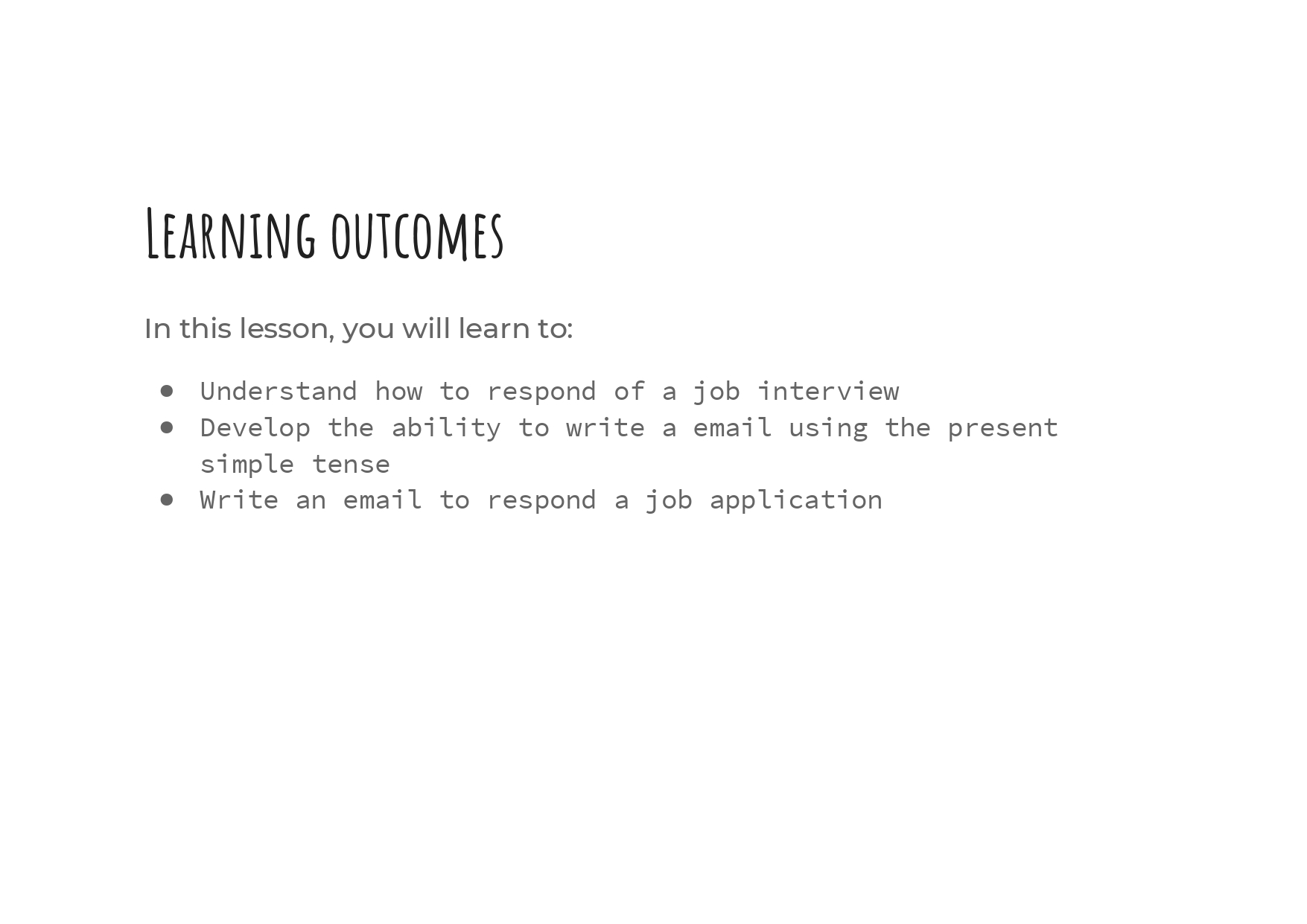
Introduction - What is a job contract?.
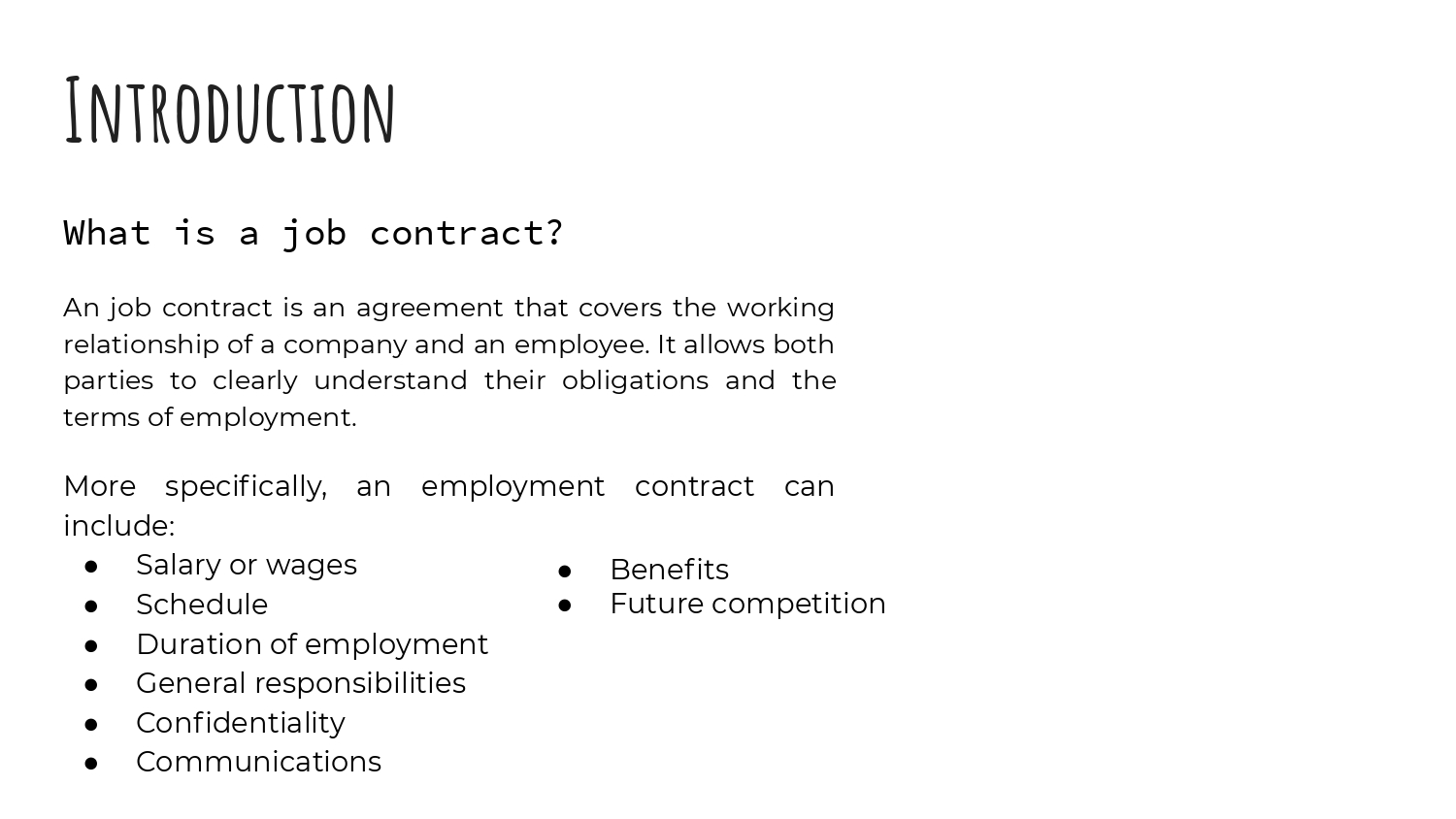
The purpose of job contract.
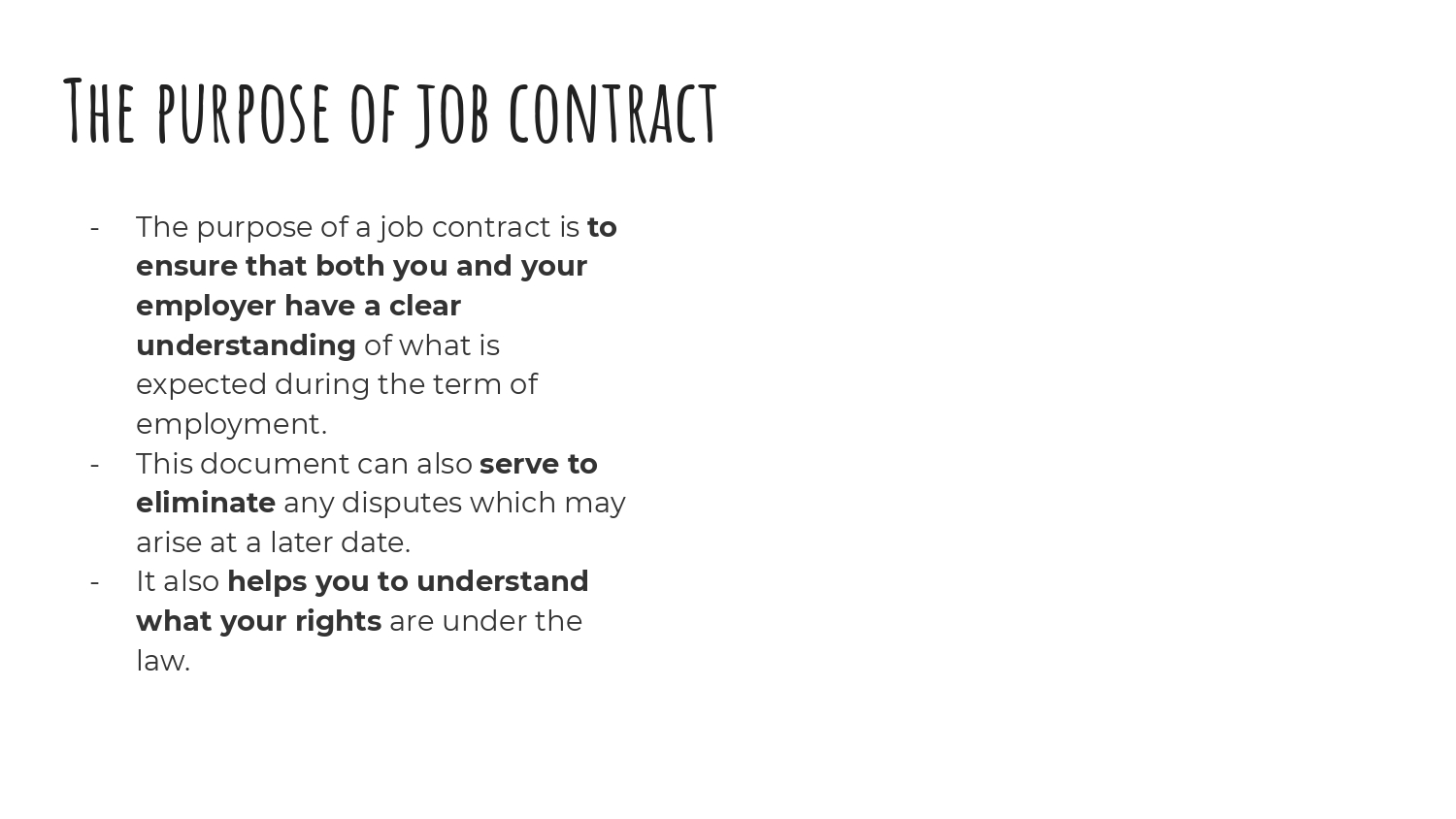
When should a job contact be used?.
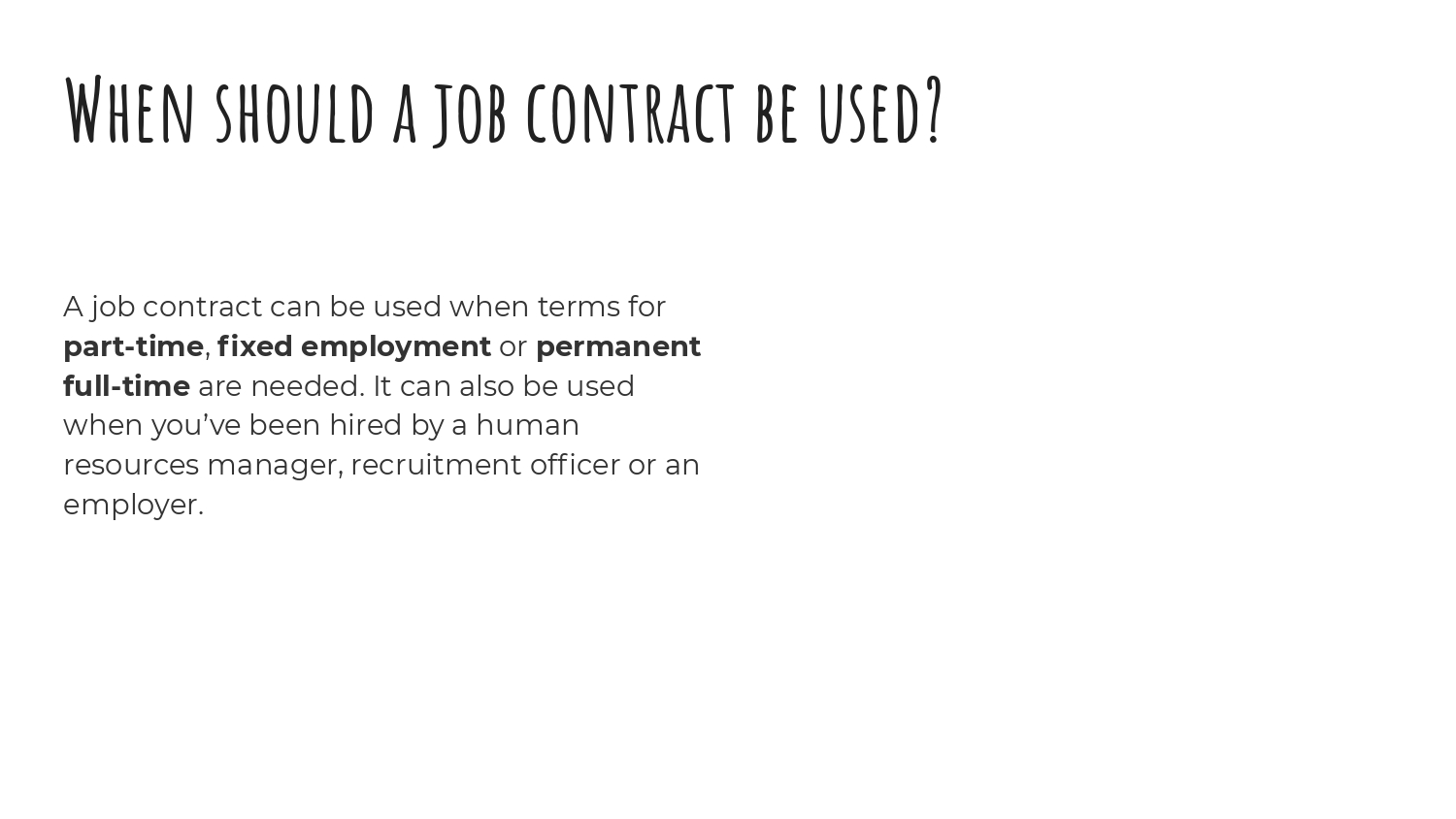
What can cause the job contract to change?.
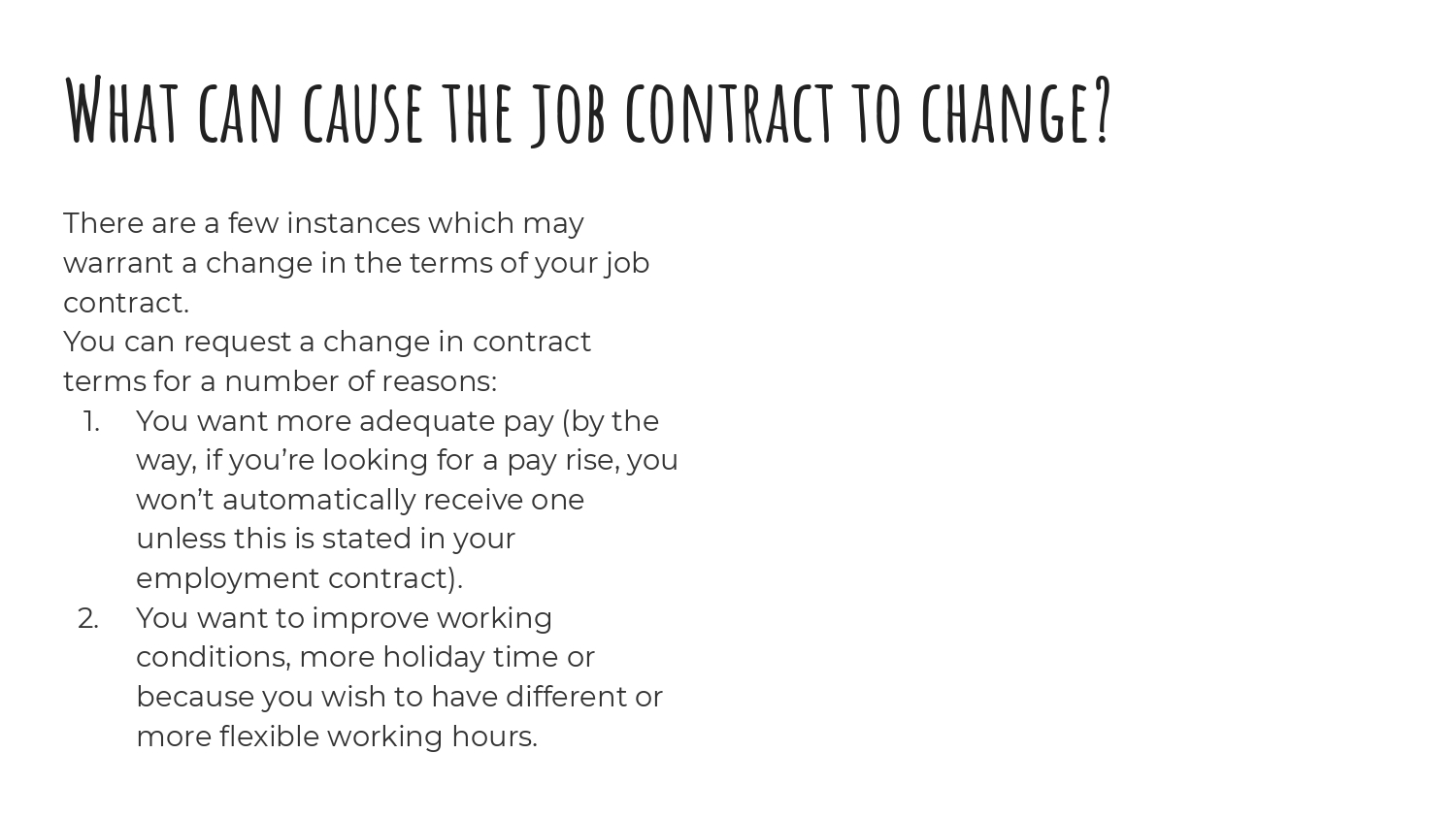
Types of job contract.
There are four main types of job contract :
1. Permanent job contract
2. Fixed-term contract
3. Casual contraxt
4. Zero Hour Contract
1. A Permanent Job Contract.
Perhaps the most widely understood document, permanent job conracts are given to those who will be working regular hours for their employer, including both full-time and part-time roles. These cover those who are salaried or work at an hourly rate, and they are ongoing until the employee leaves the business. This type of contract entitles the employee to the full range of benefits and employment rights, outlining their working hours, responsibilities, and terms of payment.
2. A Fixed-Term Contract.
A fixed-term contract is more popular amongst freelancers and contractors as they set an end date for employment. For example, a contract could last three months, six months, or a year. The contract can be extended but is put in place to ensure that temporary or contract staff are given the same right as those in permanent employment. The contract will outline the dates of employment as well as the salary and rights that we've already mentioned above. Those who overstay their contract without extending it are considered to then become permanent employees and must hand in a notice if they want to leave the company, otherwise, they're free to leave on the agreed end date.
3. A Casual Contract.
Casual job contracts are for those who want security. This includes the employer wanting the individual to commit to the business and the employee wanting to guarantee working hours. That said, these are not fixed hours like an in-permanent contract. The two parties agree on the minimum number of hours they will be guaranteed each week or month.
For example, the contract could outline that the workers will be given 16 hours a week, but it does not have to state when these hours will be, so shift patterns can differ. The document entitles the employee to statutory sick pay and other benefits and means they will accrue holiday depending on how many works they work.
4. Zero-Hour Contract.
Finally, there is the zero hours contact for those who are not able to commit - and this applies to both sides. This means there is no obligation for the employer to offer a set amount of hours and the employees can take or leave the hours they want.
These contracts entitled workers to some statutory rights, though these are often less than those of the previous three documents we have discussed. It is also worth nothing that this type of contract means the worker is not exclusive to one company, they can also work for other people. No matter what the terms are of your employment, it's important to read your contract carefully and to iron out any questions or discrepancies you may have before you sign it.